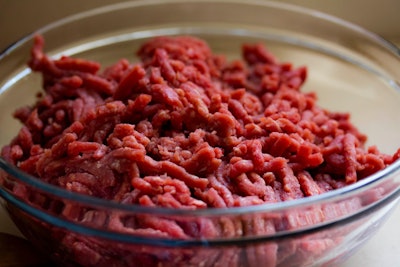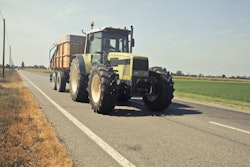
An antibiotic resistant strain of Salmonella Newport has been linked back to beef from the United States and some raw milk cheeses made in Mexico.
The deadly outbreak has spread across 32 states, beginning in June 2018 and lasting through March 2019. Less than half of the victims reported traveling to Mexico before becoming ill, according to a report posted in a CDC publication.
Read Next: FDA Has Suspended 6 Facility Registrations Under FSMA
Over 250 people fell ill from the multidrug-resistant Salmonella Newport. Specific properties of the outbreak make it rare and more dangerous than other forms of Salmonella, causing severe illness in humans.
In addition to the Salmonella Newport’s reduced susceptibility to azithromycin, the preferred treatment for salmonellosis, researchers found 252 isolates with resistance information, 90% had predicted resistance to trimethoprim-sulfamethoxazole, tetracycline and chloramphenicol. Meanwhile, 57% of the isolates had an additional predicted resistance to ampicillin and streptomycin and nonsusceptibility to ciprofloxacin.
While the outbreak strain was found in soft cheeses made with raw milk and purchased in Mexico were responsible for some of the illnesses, beef from the United States also sickened people with the same outbreak strain.
“The genetic similarity between isolates from beef in Mexico, beef in the United States, and a steer in the United States strongly suggest that the outbreak strain is present in cattle in both countries,” according to the research report. “Because use of antibiotics in livestock can cause selection of resistant strains, the reported 41 percent rise in macrolide use in U.S. cattle from 2016 to 2017 might have accelerated carriage of the outbreak strain among U.S. cattle.”
According to the research, patients who did not travel to Mexico prior to becoming ill, 29% reported eating Mexican-style soft cheese and 93% reported eating beef. For patients that had been to Mexico before becoming ill, 87% reported eating beef and 63% reported eating soft cheese.
Read Next: In Transit: FSMA Attention to Transport Coming
“The outbreak strain (in the research report) was detected in beef samples collected in November 2018 and March 2019 at two Texas slaughter and processing facilities,” according to the research report. “In October 2018, the outbreak strain was detected in a mixture of queso fresco and Oaxaca soft cheese purchased in a market in Tijuana, Mexico. The cheese had been brought into the United States by a patient who became ill with a strain that was indistinguishable from the strain isolated from the cheese.”
Between June 2018 and March 2019, 255 cases were identified in 32 states, 29% of patients whom information was available were hospitalized, 6% were admitted to ICU and two deaths were reported.



















